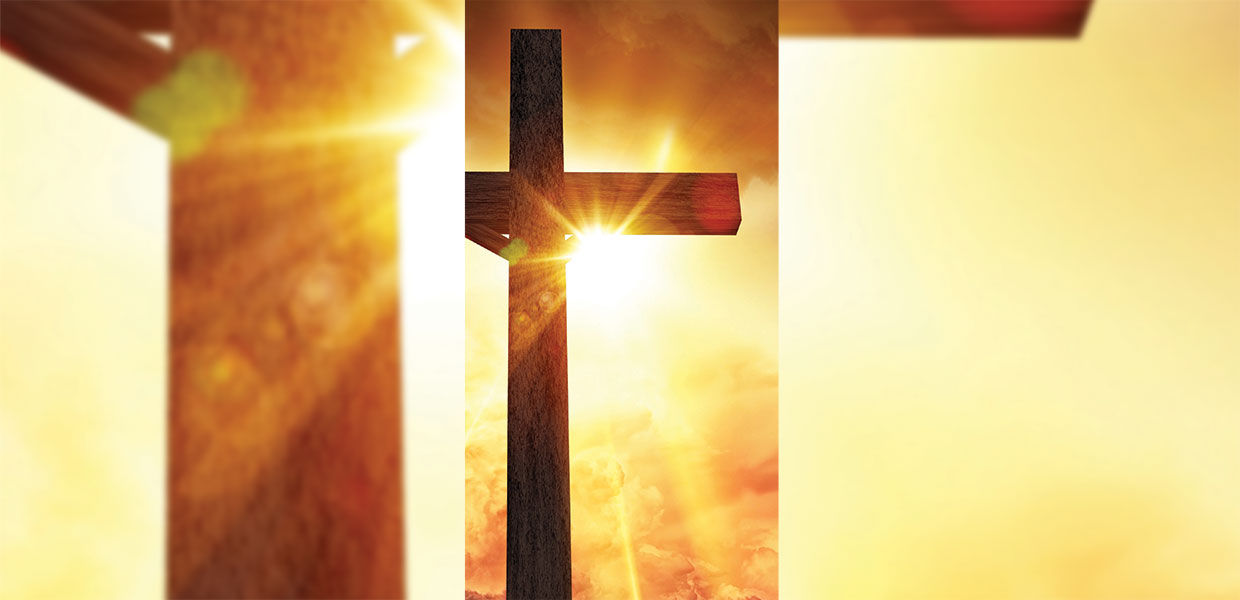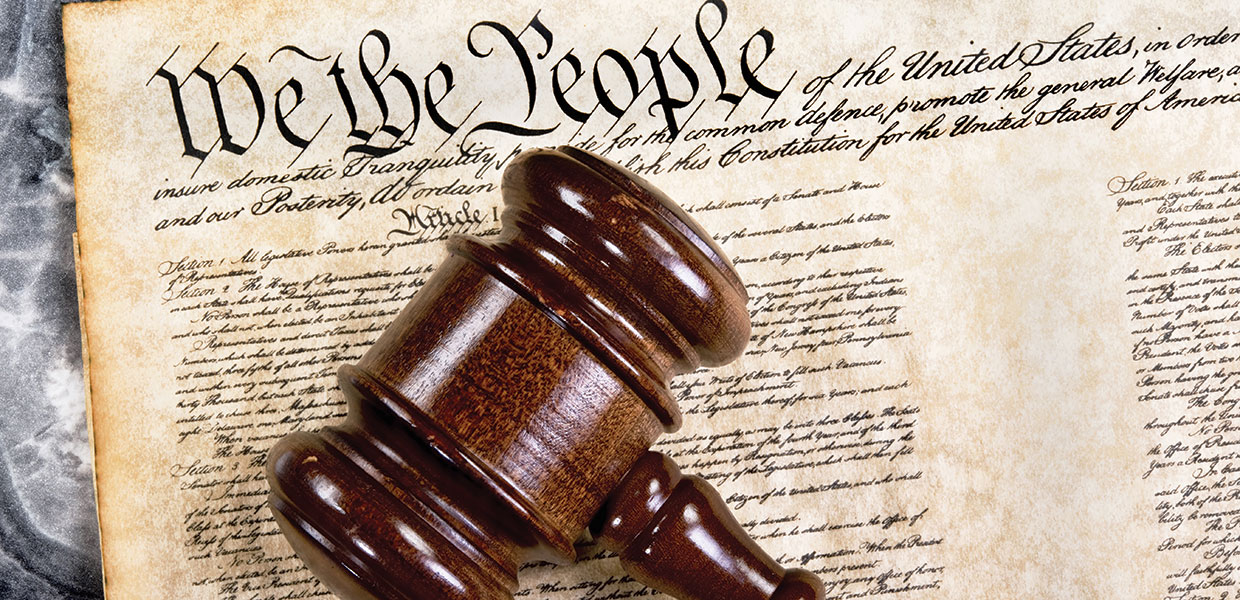

So often when we as Seventh-day Adventists look at the role of religious liberty, we relegate it to the confines of what we know about Sunday laws or Sabbath accommodation in the workplace, and very little else. This part of religious liberty work is important, but often we lose sight of greater issues going on around us. While the country as a whole has tuned in to a period of self-reflection and looking inward to our own problems — especially after the events of Charlottesville, Las Vegas, and Sutherland Springs — it may bring hope and wholeness to our souls by concentrating on others for a moment as we begin a new year.
I am hard-pressed to find anyone who lives or works around me who does not see a worrisome trend in the world today, of political division and loss of love and kindness for one another. Certainly, news during the last few months has brought out some points that we as Christians cannot and should not ignore. Current events happening in our world today should be as an alarm sounding, calling all Christians to review how we treat other human beings. In December the Supreme Court heard the case of Masterpiece Cake Shop, raising the question of whether a conservative Christian business owner can be compelled to create a cake as part of the anti-discrimination laws of his state. Religious liberty, and the broader sense of what we try to accomplish by promoting religious freedom, should give us insight and direction in how to deal with many of the issues involving the current events of our day, because religious liberty speaks to the essence of our inalienable right to follow our own conscience.
When I speak of freedom, I’m not just speaking of our right to live free, but also to be free from that which Satan himself has brought about that would imprison us. While Christ can set us free, Satan still works to forge handcuffs for the conscience of all humankind.
When we speak about religious freedom around the world, it is imperative to recognize the need to make this freedom a fundamental right for every human on this planet. For secular governments, it is an idea that may be born out of love and concern for fellow men. But for the Christian, and certainly Seventh-day Adventists, it is an issue that is patterned on a heavenly precept of what God has given us, just as He did Lucifer and the heavenly host — the gift of freedom of conscience and freedom of choice. For the Christian, if we are to live a life like Christ, we must engender an attitude toward freedom as it is practiced in Heaven.
If religious freedom cannot be found in America, where else in the world would you find it? In the opening preamble of our own Constitution, our founding fathers acknowledge the basic human right to life, liberty, and the pursuit of happiness, but we should also include the right to justice and peace. As Christians, we acknowledge that every person living on Earth is a child of God. When we acknowledge our origins, each individual should be treated with dignity despite our own religious differences. How many wrongs could have been avoided throughout history if human beings would treat each other with respect, integrity, and dignity?
Great leaders have spoken out on the issue of religious freedom and the rights of conscience. We find supporting documents in the Declaration of Human Rights, our country’s own Constitution and the Bill of Rights, even Liberty Magazine’s declaration of principles which encompasses the rights of conscience and “the essence of the golden rule — to treat others as one wishes to be treated.”
Religious persecution is a real issue around the world, not just in how it restricts freedom of conscience, but in some cases how it restricts inclusion in the community and ownership of property. And in other cases, it can mean imprisonment, or even death. History shows that bad things happen when people disagree about religion. Thus, it should become imperative that governments protect the conscientious individual. However, the right to believe is meaningless if other rights are not extended. One of Jesus’ last commands to His disciples was, “Go into all the world and preach the gospel to all creation,” Mark 16:15. The issue of freedom of religion goes to the very core of who we are and why we are put here on earth. When we allow an individual to interact in every other secular way — voting, property ownership, participating in economic or educational opportunities — but then restrict the individual’s ability to speak and share and participate in worshipping together, then you deny them a necessary part of their own humanity in regards to who they are and why they exist.
Making religious freedom a foundation block upon which all other blocks within our society rests should be our primary goal. Stemming from this action alone will be the birth of other humanitarian efforts, such as the goals for peace and security all governments and people should be striving to achieve. By allowing religious liberty to flourish, you can incorporate other humanitarian goals, like bringing justice to the wrongly accused and development to the economically, physically, or socially oppressed. Being alert to the needs of the different peace-loving religious groups around us brings us to a closer understanding of those who are different from us. You cannot defend religious liberty without being for justice, and you cannot defend religious liberty without being for equality. By celebrating religious freedom in this way, we bring hope to the oppressed masses.
I know that to some this might seem like a political stand. After all, as conservative Christians we see governments leaning to a more secular view of human rights, thus giving every appearance that biblical principal is being discarded in favor of human rights. However, the true Christian should not allow any government or political worldview to turn them away from our biblical responsibilities. As Christians, we must hold ourselves to a higher standard. Separate yourself from trending ideas or popular political views, and look instead to the true essence of what it means to live for God and serve humanity.
As the nation becomes more divided, our churches and the members who worship within them should unite, not on a shared political view, but on a shared biblical view — understanding, as Ellen White says, that, “The banner of truth and religious liberty held aloft by the founders of the gospel church and by God’s witnesses during the centuries have passed since then, has, in this last conflict, been committed to our hands. The responsibility for this great gift rests with those whom God has blessed with a knowledge of His Word,” Acts of the Apostles, p. 68.2. Religious liberty is not something that only one segment of the church should uphold, defend, and preserve. It is a precious gift from God that should be nurtured so that it will grow and bring a better life to all humanity.
When we divide ourselves on our differences, when we fail to come together as a people of God, when we lose the power of love and grace, we separate ourselves from God, fragmenting, not just the body of Christ, but also the body of humanity itself. We separate ourselves from the task of showing others how they can be made whole in Christ.
“Today God gives men opportunity to show whether they love their neighbor. He who truly loves God and his fellow man is he who shows mercy to the destitute, the suffering, the wounded, those are ready to die. God calls upon every man to take up his neglected work, to seek to restore the moral image of the Creator in humanity,” Letter 113, 1901.
“Everyone has the right to freedom of thought, conscience, and religion; this right includes freedom to change his religion or belief, and freedom, either alone or in community with others and in public or private, to manifest his religion or belief in teaching, practice, worship, and observance,” Article 18.
Religious liberty must incorporate freedom of thought, choice, expression, and assembly. Can we as Adventists change the world? Can we do better to help change and restore the image of God to humanity? Let us move forward with purpose to restore hope and wholeness to our fellow humans in this New Year.
is the director of religious liberty and public affairs at the Southern Union in Norcross, Georgia.
Southern Union | January 2018



Comments are closed.